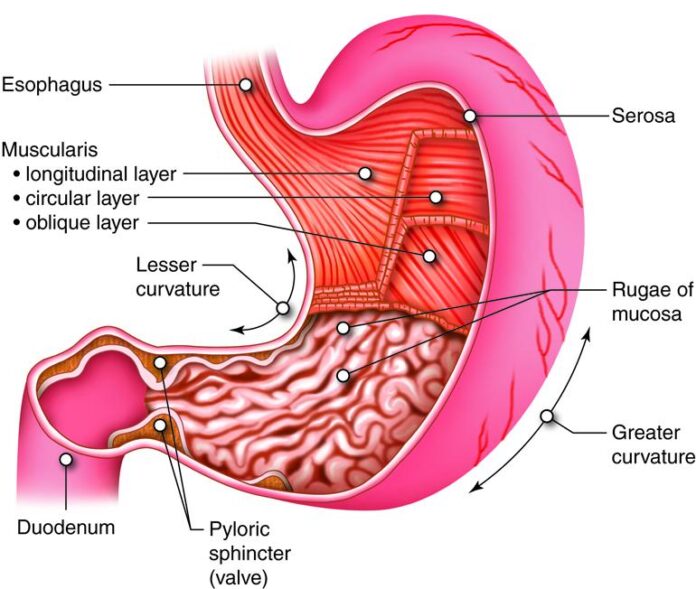
Understanding Gastrointestinal Disorders: Causes, Symptoms, and Treatment
Gastrointestinal disorders are a common medical condition that affects millions of people worldwide. These disorders can range from mild to severe and can have a significant impact on an individual’s quality of life. In this article, we will explore the causes, symptoms, and treatment options for gastrointestinal disorders in order to help you better understand this complex medical condition.
Causes of Gastrointestinal Disorders
There are many factors that can contribute to the development of gastrointestinal disorders. Some of the most common causes include:
1. Poor Diet: A diet high in processed foods, sugar, and unhealthy fats can contribute to digestive issues such as bloating, gas, and constipation.
2. Stress: Stress can have a profound impact on gastrointestinal health, as it can disrupt the balance of bacteria in the gut and lead to inflammation.
3. Medications: Certain medications, such as antibiotics and nonsteroidal anti-inflammatory drugs (NSAIDs), can irritate the lining of the stomach and intestines, leading to gastrointestinal issues.
4. Infections: Bacterial and viral infections can cause acute gastrointestinal symptoms such as diarrhea, vomiting, and stomach pain.
5. Food intolerances: Some people may be intolerant to certain foods, such as gluten or dairy, which can cause gastrointestinal symptoms when consumed.
Symptoms of Gastrointestinal Disorders
The symptoms of gastrointestinal disorders can vary depending on the specific condition and its severity. Some common symptoms include:
1. Bloating: Feeling bloated or full after eating, even if you have not consumed a large meal.
2. Abdominal pain: Cramping or discomfort in the stomach or intestines.
3. Diarrhea: Frequent, loose stools that may be accompanied by urgency or abdominal cramping.
4. Constipation: Difficulty passing stools or infrequent bowel movements.
5. Nausea and vomiting: Feeling sick to the stomach and/or vomiting.
6. Indigestion: Feeling uncomfortable or burning sensation in the upper abdomen after eating.
7. Weight loss: Unexplained weight loss despite normal eating habits.
Treatment of Gastrointestinal Disorders
The treatment of gastrointestinal disorders will depend on the specific condition and its underlying cause. Some common treatment options include:
1. Dietary changes: Making changes to your diet, such as avoiding trigger foods or increasing fiber intake, can help to improve gastrointestinal symptoms.
2. Medications: Your doctor may prescribe medications to help alleviate symptoms such as acid reflux, diarrhea, or constipation.
3. Probiotics: In some cases, probiotics may be recommended to help restore the balance of healthy bacteria in the gut.
4. Stress management: Techniques such as meditation, yoga, or therapy can help to reduce stress and improve gastrointestinal health.
5. Surgery: In severe cases, surgery may be necessary to treat conditions such as bowel obstructions or severe gastrointestinal infections.
Prevention of Gastrointestinal Disorders
While not all gastrointestinal disorders can be prevented, there are steps you can take to reduce your risk of developing these conditions. Some tips for preventing gastrointestinal disorders include:
1. Eating a healthy diet: Consuming a diet rich in fruits, vegetables, whole grains, and lean proteins can help to support gastrointestinal health.
2. Staying hydrated: Drinking plenty of water can help to keep your digestive system functioning properly.
3. Managing stress: Engaging in stress-reducing activities such as exercise, meditation, or spending time outdoors can help to improve gastrointestinal health.
4. Avoiding trigger foods: If you have food intolerances or sensitivities, it is important to avoid these trigger foods to prevent gastrointestinal symptoms.
5. Seeking medical advice: If you are experiencing persistent gastrointestinal symptoms, it is important to seek medical advice from a healthcare professional.
In conclusion, gastrointestinal disorders are a common medical condition that can have a significant impact on an individual’s quality of life. By understanding the causes, symptoms, and treatment options for gastrointestinal disorders, you can better manage your condition and improve your overall health and well-being. If you are experiencing persistent gastrointestinal symptoms, it is important to seek medical advice from a healthcare professional in order to receive an accurate diagnosis and appropriate treatment.

















